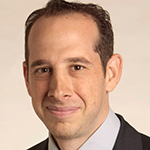|
|
Now that the Super Bowl is over and the inane commentary about its importance to the United States, – every school kid knows that the Founding Fathers got their inspiration to form a new country after hearing NFL commissioner Roger Goodell speak at the Constitutional Convention warning the colonists not to let cricket become the American sport of sports – lets spend a few minutes on the use of American English by football broadcasters, sports talk radio hosts and Goodell.
After years of hearing the Mara's (owners of the N.Y. Giants) and the Rooney's (owners of the Pittsburgh Steelers) being extolled for their classiness, I decided to look up the actual meaning of the word “classiness.
No where could I find a meaning of the word that referred to turning the other way when their employees suffered serious injuries on the grid iron; or when a player was removed from a game for only one play after an injury time-out; or when they continue to hire employees to lucrative contracts despite their off-the-field odious actions; or when they let their high paid employee, Goodell, deny for years that football might cause life altering brain damage and death to the players; or when only after the Ray Rice incidence they said that they didn’t realize what a big problem spousal abuse was in America. Perhaps the Maras, Rooneys and Goodell spend all their waken hours checking the profits (never losses) that teams generate before, during and after each snap of the football. A better word that describes the actions of these oft-referred “classy’ gentlemen would be a synonym of “crassness.” Your choice.
Football commentators desperately need a dictionary or thesaurus. They can’t seem to use non-military terms when describing a game. Words like blitz and bombs seem to be the only utterances that can be used to describe attempts to rush the passer or when he completes a long touchdown pass. At least “bullet pass” hasn’t been used for a while. An oxymoron frequently used is ‘impossible catch.” In my world, the “impossible” wouldn’t result in a completion.
And how can any article on football talk be complete without spending a few words on sports talk radio, where broadcasters know more than coaches and the callers-in know more than the radio hosts.
It’s heart-warming to learn that the talkers are so concerned about Peyton Manning’s legacy that for weeks they hoped Super Bowl 50 was his last game because they can’t stand the sight of him playing like a shell of his former self. (Caveat: If Manning would have heeded the advice, he would have hung up his helmet a few years ago and not be the starting QB in “50.”)
Also, some sports talk radio hosts spent days and thousands of words talking about Cam Newton’s saying, "I'm an African-American quarterback that may scare a lot of people because they haven't seen anything that they can compare me to" and also criticized his excessive celebrations. Not receiving many words during the racism discussions was his giving touchdown balls to little white girls. Why?
By spending so many days talking about Newton’s excessive celebrations, talk radio hosts turned the discussion from football to racism. Since words matter, let me be perfectly clear. I am not accusing the hosts of being racists. They are entertainers. They live by their ratings. They need to discuss topics that interest their audiences. Newton’s antics certainly accomplishes that.
For days, leading up to the game, talk radio coverage was dominated by racism and HGH allegations and concussions. Largely missing was talk about the Big Game. Perhaps the Golden Era of the Super Bowl was when the coverage was limited to only concussions.
Listening to sports talk radio and reading print articles was equivalent to being at an orthopedic convention with all the talk about hip and knee replacements, arm and shoulder replacements and C.T.E. problems.
The low point of sports talk radio during last season occurred when co-hosts on the number one sports talk station in New York stopped talking sports. Bug mistake. They both said how much they hated school. To my way of thinking, that was an intercepted pass, a fumble and a touch back all in one. (Hope my grandchildren weren’t listening.) Every time I hear the duo who subs for him it adds to my appreciation of the intelligent commentary by Mike Francesa.
Not that I’m against it, but talk radio for the week leading up to the game might remind students of history of the public works programs during the FDR administration that provided workers with jobs. In this case, retired NFL players make the rounds of radio row, talking football, but are really there to hawk the wares of sponsors.
Question: Do the great majority of callers into sports talk radio programs care about anything except “what’s wrong with their teams,” “who is a better player or coach,” etc? Dating back to baseball’s steroid era, Penn State sexual abuse scandal and the many warts of the NFL (led by concussion denials and the appalling behavior of its players), days go by before a negative opinion of sports’ excesses are given by the callers.
However, Saturday morning talk radio seems to have a different audience. I’ve noticed a growing number of parents saying that they will not permit their children to play tackle football because of its dangers.
Perhaps the most misused word of 2015 was “integrity,” which Goodell used so often when handing out stand-in-the corner punishisments during the season that I started to believe that the meaning of “integrity” was “hypocrisy.”
To many in the football family and their fanatic followers the famous Vince Lombardi words: “Winning isn’t everything, it’s the only thing” is the rule to live by. What they fail to quote is another Lombardi statement: "I wished I'd never said the thing...I meant the effort. I meant having a goal. I sure didn't mean for people to crush human values and morality." Obviously, that Lombardi quote is not in the NFL lexicon. And that’s a disservice to Lombardi’s legacy.
Listening to the same questions asked by the same reporters to the same players repeatedly during Super Bowl media opportunities, reminds me of the same questions asked by the same reporters to the same candidates during the presidential debates.
Two non-sports page articles in the Times on that day of the game had words that the vaunted NFL shield couldn’t protract against:
One was an editorial detailing the dangers of playing football, especially emphasizing the number of players with C.T.E. and the league’s long denial of the problem.
Of all the words spoken and written leading up to the Big Game, perhaps the most damming and truthful ones appeared in the other article: A Times magazine story on Super Bowl day had Nate Jackson, the former Denver tight end, telling reporter Mark Leibovich that “the reason football is so dangerous is that the men making the decisions are not the ones getting hit.”
Words matter. But in all aspects of life, whether written or spoken, not all words convey the truth or make sense, especially those from the NFL. Prime example: During his State of Football press conference commissioner Goodell said, “I believe football is the best way to teach the values of life.”
Another Goodellism from his speech was his preposterous comment about the risk of sitting on the couch: As a novice reporter, I was on the sidelines for nearly 100 football games. Several times I had to quickly relocate to prevent from being bowled over by a player running, tackled or being pushed out of bounds. I watched many games from the dangerous couch, without ever having to take cover because a football player came crashing from the TV set into my living room.
But what can you expect from a league that has a commissioner whose favorite word “integrity,” and favorite phrase “protect the shield,” is his boiler plate answer to NFL problems.
Roger Goodell reminds me of the many people we all know from our PR agency careers. They might not know much about PR, especially how to deal with the media. But they rise to the top because they are expert bean counters, proving that money speaks louder than words.
Arthur Solomon, a former journalist, was a senior VP/senior counselor at Burson-Marsteller, and was responsible for restructuring, managing and playing key roles in some of the most significant national and international sports and non-sports programs. He now is a frequent contributor to public relations publications, consults on public relations projects and is on the Seoul Peace Prize nominating committee. He can be reached at [email protected].



 Brunswick Group handles Endeavor, which has launched a review of strategic alternatives at the sports and entertainment combine as CEO Ari Emanuel believes Wall Street undervalues his company.
Brunswick Group handles Endeavor, which has launched a review of strategic alternatives at the sports and entertainment combine as CEO Ari Emanuel believes Wall Street undervalues his company. MWWPR has been retained by SportBLX to lead communications for the launch of a platform that allows fans and investors to own shares of unique assets in sports.
MWWPR has been retained by SportBLX to lead communications for the launch of a platform that allows fans and investors to own shares of unique assets in sports. DraftKings is betting on Donald Trump-connected Ballard Partners to help it achieve its economic development and regulatory relief goals in Washington. (1 reader comment)
DraftKings is betting on Donald Trump-connected Ballard Partners to help it achieve its economic development and regulatory relief goals in Washington. (1 reader comment) On November 15, “Ford v Ferrari” will roar into theaters, packing a publicity boost for two great global auto brands right on the marquee. Here's a Top Ten list of films in which a brand played a starring role. (1 reader comment)
On November 15, “Ford v Ferrari” will roar into theaters, packing a publicity boost for two great global auto brands right on the marquee. Here's a Top Ten list of films in which a brand played a starring role. (1 reader comment) Steven Spielberg’s Amblin Partners has brought on Dan Berger as executive vice president and head of communications.
Steven Spielberg’s Amblin Partners has brought on Dan Berger as executive vice president and head of communications.


 Have a comment? Send it to
Have a comment? Send it to 
No comments have been submitted for this story yet.